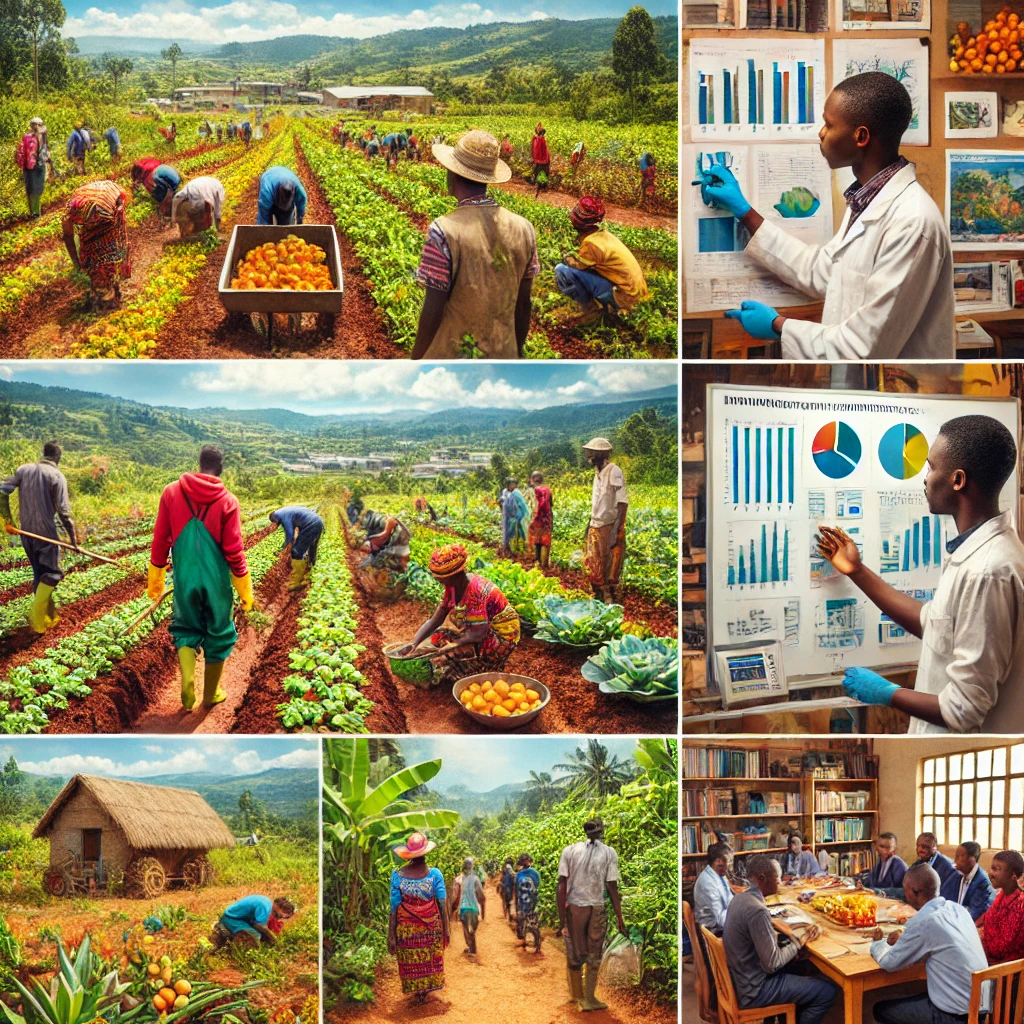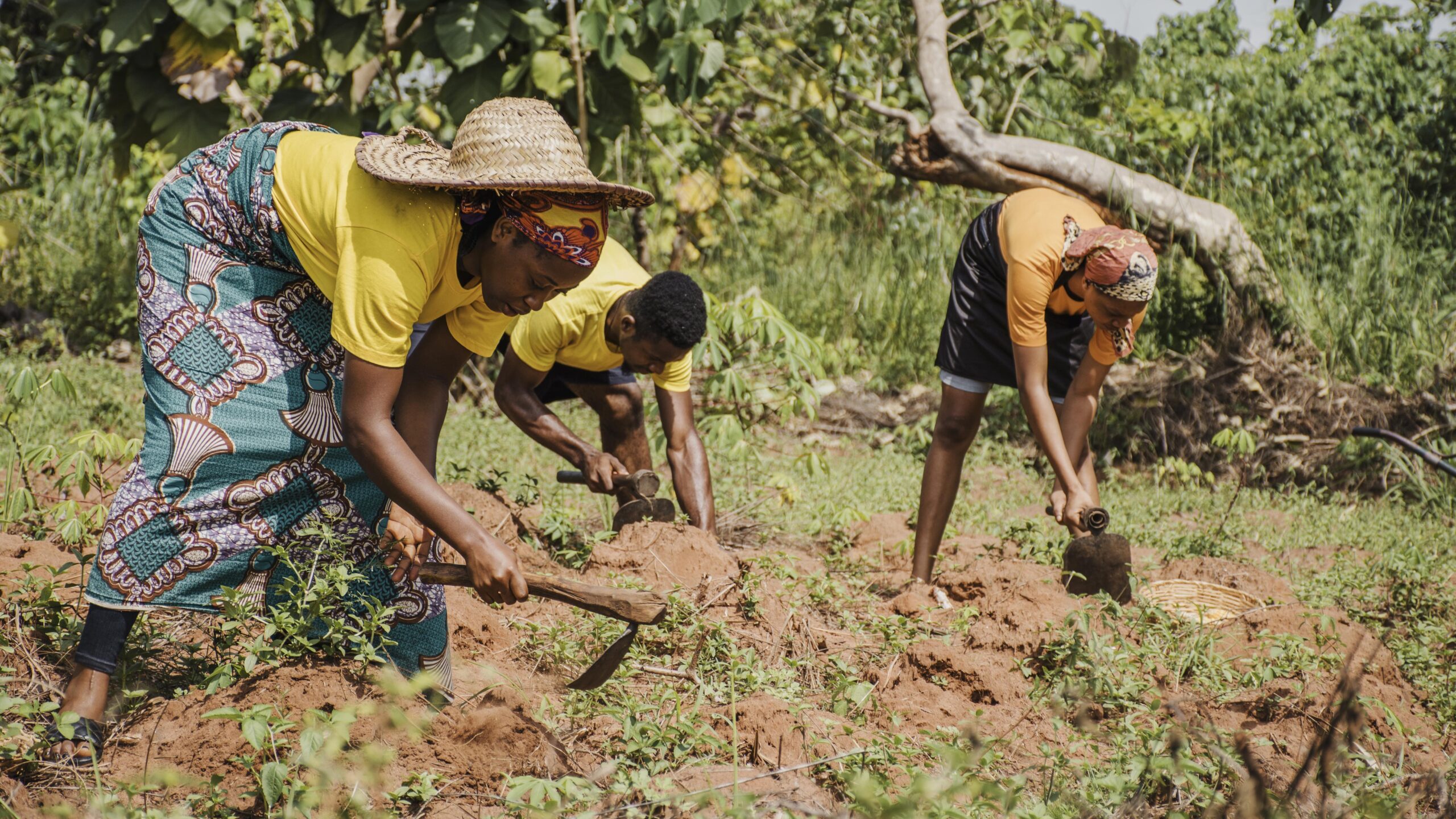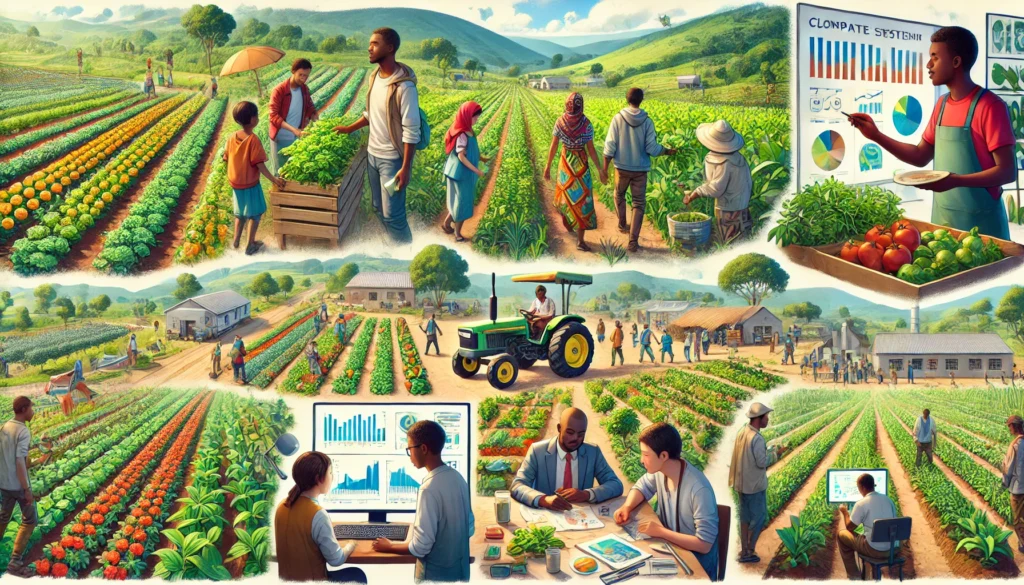
Agriculture is crucial for food and nutrition security, employment, economic growth, and sustaining African livelihoods. In Cameroon, horticulture accounts for over 50% of youth employment and 64% of the agricultural GDP. However, the horticulture value chain in the Western highlands of Cameroon (WHC) remains underperforming, leading to low production and productivity, rising food insecurity, low human resource utilization, and limited job opportunities. This situation has been aggravated by climate change, depletion of natural resources, and ongoing socio-political crises.
Within the framework of The Regional Universities Forum for Capacity Building in Agriculture’s (RUFORUM) Agri-food Systems Community Action Research and Entrepreneurship Projects (ASEC) component of the TAGDev 2.0 program, The University of Bamenda (UBa) successfully designed a project to harness the Agri-food Systems and Entrepreneurship Development in the Horticulture Value Chain in the Western Highlands (WHC) of Cameroon. The project will strengthen all segments of the horticulture value chain, from production and agricultural inputs (fertilizers, seeds, etc), through post-harvest management and transformation of horticultural produce into value-added products, to product normalization and certification, distribution, and commercialization.

The ASEC project outputs include; enhanced skills of 2,590 educated, out-of-school, and empowered youths (70% female, 30% male); enhanced knowledge, skills, and technical support of at least 82,000 smallholders on climate-smart horticultural technologies and their adoption to enhance production and productivity; improved knowledge and skills of at least 20,500 smallholders on post-harvest management, processing, and value addition to horticultural products; facilitated participatory and experiential knowledge exchange with stakeholders through Farmer Field School events; documented experiences to improve research and innovation at UBa and its partner institutions, and potential impacts such as increased production and productivity by at least 30%, increased consumption of horticultural products at household level, and increased employment opportunities for young women and men.
This project aims to improve the capacity of diverse stakeholders in the horticulture value chain in the WHC by skilling and empowering young women and men in participatory, gender-sensitive, equitable, and climate-resilient horticulture and entrepreneurship, underpinning sustainable food and nutritional security, employment/job creation, poverty reduction, and livelihood improvement. The project’s target population includes underprivileged young small farm holders including refugees, displaced people, and those who are differently enabled, with 70% female and 30% male to be impacted.

The project’s potential impacts include increased horticultural production and productivity by 30% with increased income by 20%, increased consumption of horticultural products at the household level, 18 dissertations and theses completed, 50 designed tailor-made horticulture-related courses, 30,000 jobs opportunities created/enabled for young women and men, 75 new start-ups and 170 enterprises created/enabled, and at least 1,200,000 improved fruit trees planted. Two new cooperatives will be created, and an interactive knowledge exchange platform will be established for all Horticulture actors beyond the Western Highlands.
The project will run for a period of 5 years under sponsorship offered by the mastercard foundation and the coordination of RUFORUM, will be executed in collaboration with major eco-system stakeholders and partners to The University of Bamenda, including The University of Ngaoundéré, The University of Maroua, Cameroon Opportunities Industrialization Center (COIC) and the Higher Institute of Agriculture (Institut Supérieur Agricole-ISAGO) -Obala.

